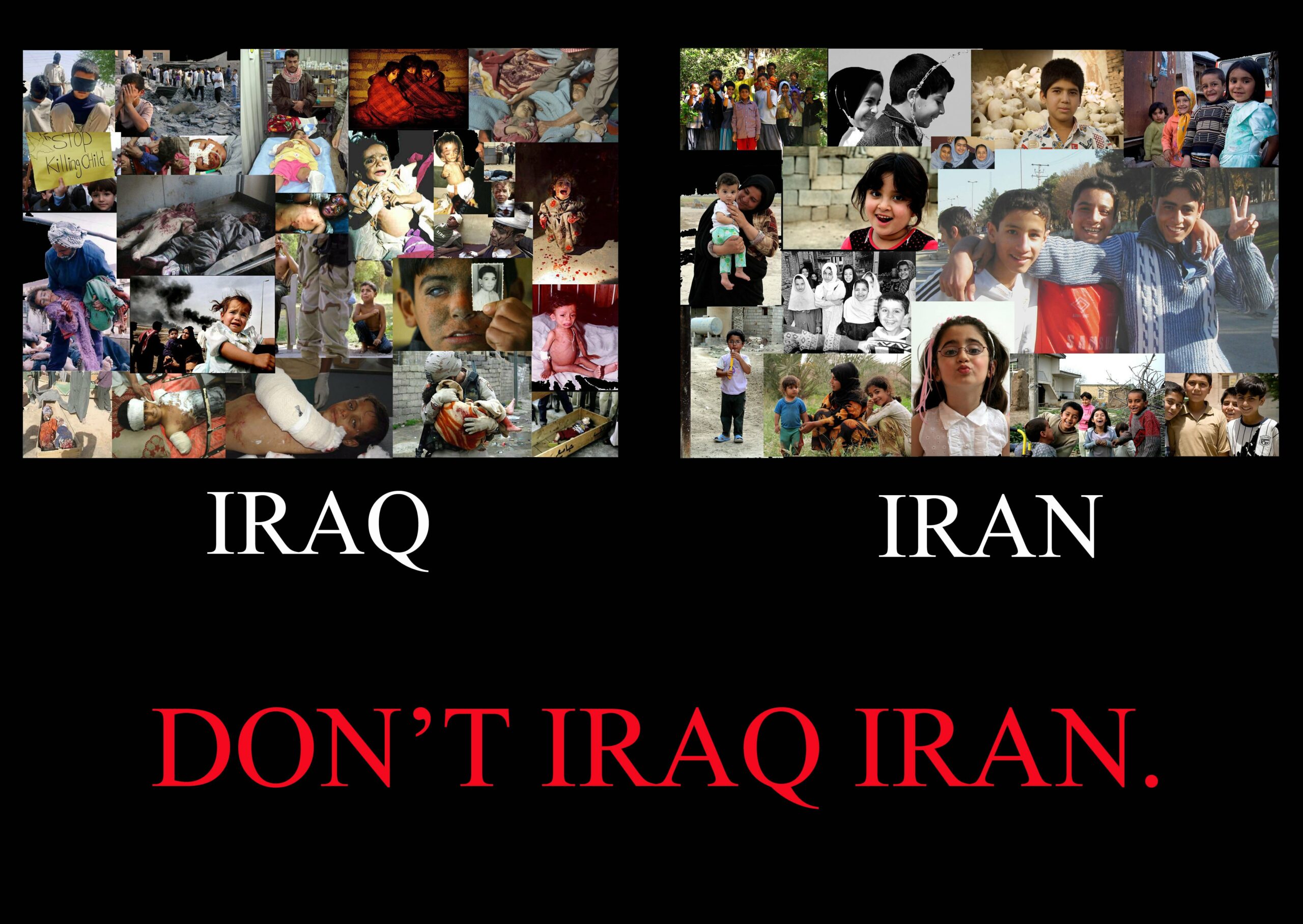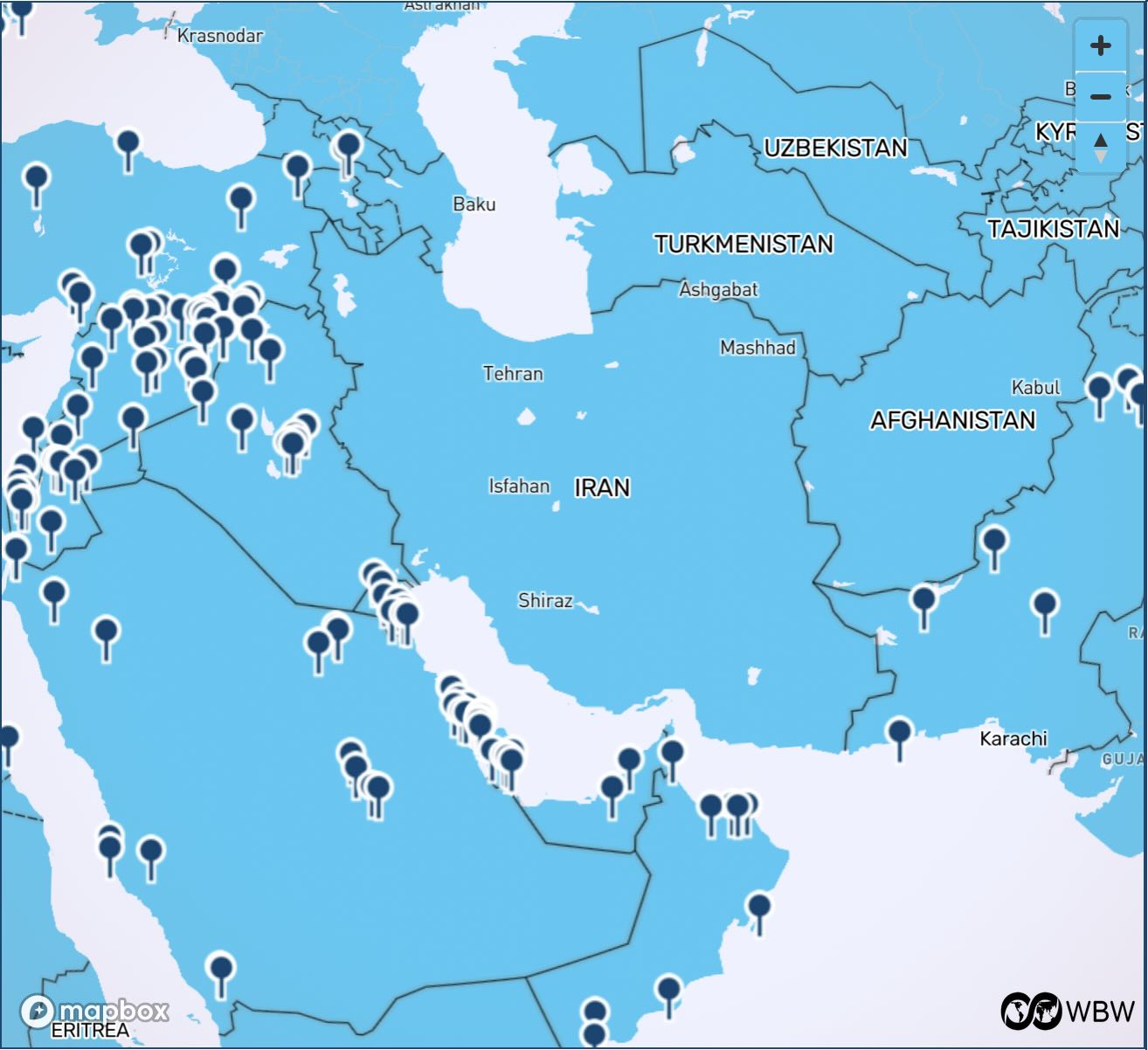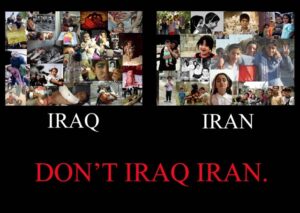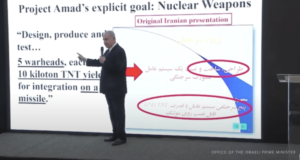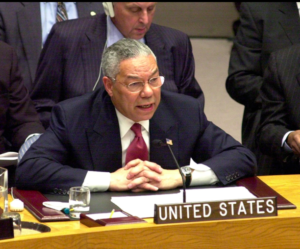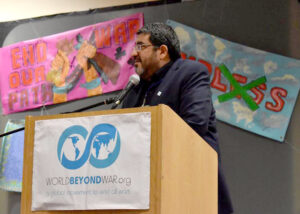Here’s another war we do not need that could lead to the war we do not survive. The good news is that we’ve been successfully preventing this war for 20 years so far.
The Urgent Need to Attack Iran Has Been Falsely Advertised for 20 Years
By David Swanson, World BEYOND War, January 31, 2024
For a couple of decades now, the very worst people in Washington, D.C., have pushed hard for a war on Iran. Some high points have come in 2007, 2015, 2017, and 2024. Each time it has been absolutely critical to attack Iran at once. There could be no delay. Dominoes would fall. Terrorism would prevail. Credibility would be sqandered. And yet, each time, the threatened war has not been launched, and the world has gone on just the same.
We’ve seen a wide variety of excuses deployed over these years of unsuccessful propaganda for a war on Iran, including false claims about nuclear weapons, the pretense that attacking Iran would improve civil liberties within Iran, and shockingly honest commitments to gaining control of more oil with which to slowly destroy the habitability of the Earth. The push to attack Iran has been on for so long that entire categories of arguments for it (such as that the Iranians are fueling the Iraqi resistance) and demonized leaders of Iran have come and gone. The latest excuse is the killing of three members of the U.S. military.
Ordinarily, killing people could be prosecuted as a crime. But that’s tricky, because the United States government opposes and refuses to take part in international law, the U.S. troops had no legal justification for being where they were, and the violence across the region is being driven by U.S. support for enormous crimes by the Israeli government.
More importantly, the advocates for war do not want to prosecute a crime, but to use a crime as an excuse to commit much larger crimes, on the familiar model of September 11, October 7, etc. The choice to escalate is not imposed on anyone; similar situations in the past have been used as excuses for war and also allowed to pass without the launching of any war.
The U.S. government purports to believe that escalating wars will reduce wars, flying in the face of the overwhelming evidence of centuries, and to believe that there is no alternative, even though the demands of all sorts of warmakers across Western Asia are all the same and extremely easy to satisfy (and satisfying them has been ordered by the International Court of Justice): stop destroying Gaza and killing Gazans.
The U.S. government distorts the notion of “defense” beyond all recognition by claiming that harm done to its imperial troops anywhere on Earth can justify a “defensive” war. This is highly convenient for war hawks in Washington, D.C., who have known for many years that getting U.S. troops killed can be a big propaganda boost for war madness — an idea eagerly encouraged today by U.S. media outlets that are always perfectly capable of demanding revenge while simulaneously calling it “defense.”
In 2022 military spending, Iran spent 0.8% what the U.S. did. Iran is not a threat to the United States, despite having put its nation so close to so many U.S. military bases.
This is what the empire of U.S. military bases looks like to Iran. Try to imagine if you lived there, what you would think of this. Who is threatening whom? Who is the greater danger to whom? The point is not that Iran should be free to attack the United States or anyone else because its military is smaller. The point is that doing so would be national suicide. It would also be something Iran has not done for centuries. But it would be typical U.S. behavior.
The U.S. overthrew Iran’s democracy in 1953 and installed a brutal dictator / weapons customer. The U.S. gave Iran nuclear energy technology in the 1970s. Following the Iranian revolution, the United States aided Iraq in the 1980s in attacking Iran, providing Iraq with some of the weapons (including chemical weapons) that were used on Iranians and that would be used in 2002-2003 (when they no longer existed) as an excuse for attacking Iraq.
The roots of a Washington push for a new war on Iran can be found in the 1992 Defense Planning Guidance, the 1996 paper called A Clean Break: A New Strategy for Securing the Realm, the 2000 Rebuilding America’s Defenses, and in a 2001 Pentagon memo described by Wesley Clark as listing these nations for attack: Iraq, Libya, Somalia, Sudan, Lebanon, Syria, and Iran. It’s worth noting that Bush Jr. overthrew Iraq, and Obama Libya, while the others remain works in progress. The arguments in these old forgotten memos were not what the war makers tell the public, but much closer to what they tell each other. The concerns were those of dominating regions rich in resources, intimidating others, and establishing bases from which to maintain control of puppet governments.
In 2000, the CIA gave Iran nuclear bomb plans in an effort to frame it. This was reported by James Risen, and Jeffrey Sterling went to prison for allegedly being Risen’s source. But nobody involved in the scheme was ever punished in any way.
In 2010, Tony Blair included Iran on a list of countries that he said Dick Cheney had aimed to overthrow. The line among the powerful in Washington in 2003 was that Iraq would be a cakewalk but that real men go to Tehran.
For many years, the United States has labeled Iran an evil nation, attacked and destroyed the other non-nuclear nation on the list of evil nations, designated part of Iran’s military a terrorist organization, falsely accused Iran of crimes including the attacks of 9-11, murdered Iranian scientists, funded opposition groups in Iran (including some the U.S. also designates as terrorist), flew drones over Iran, openly and illegally threatened to attack Iran, and built up military forces all around Iran’s borders, while imposing cruel sanctions on the country. The long history of the United States lying about Iranian nuclear weapons is chronicled by Gareth Porter’s book Manufactured Crisis.
In 2007, we were told that Iran needed to be attacked urgently due to false claims about nuclear weapons. Even a National Intelligence Estimate in 2007 pushed back and admitted that Iran had no nuclear weapons program.
In 2015, Republicans urged war justified by Iran’s nuclear weapons program, while Democrats successfully moved for passage of an agreement with Iran, also justified by Iran’s nuclear weapons program. The agreement was not a treaty, and President Trump would later throw it out. But the damage of both sides falsely claiming that Iran had a nuclear weapons program was done.
Dick and Liz Cheney’s book, Exceptional, tell us we must see a “moral difference between an Iranian nuclear weapon and an American one.” Must we, really? Either risks further proliferation, accidental use, use by a crazed leader, mass death and destruction, environmental disaster, retaliatory escalation, and apocalypse. One of those two nations has nuclear weapons, has used nuclear weapons, has provided the other with plans for nuclear weapons, has a policy of first-use of nuclear weapons, has leadership that sanctions the possession of nuclear weapons, and has frequently threated to use nuclear weapons. I don’t think those facts would make a nuclear weapon in the hands of the other country the least bit moral, but also not the least bit more immoral. Let’s focus on seeing an empirical difference between an Iranian nuclear weapon and an American one. One exists. The other doesn’t.
If you’re wondering, U.S. presidents who have made specific public or secret nuclear threats to other nations, that we know of, as documented in Daniel Ellsberg’s The Doomsday Machine, have included Harry Truman, Dwight Eisenhower, Richard Nixon, George H.W. Bush, Bill Clinton, and Donald Trump, while others, including Barack Obama and Donald Trump have frequently said things like “All options are on the table” in relation to Iran or another country.
Proponents of war or steps toward war (sanctions was a step toward the war on Iraq) say we urgently need a war on Iran now, but they have no argument for urgency, and they’ve been making the same argument with ever less credibility for years.
The Trump White House early on openly expressed a desire to claim that Iran had violated the 2015 nuclear agreement, but produced no evidence. It didn’t matter. Trump tore up the agreement anyway and used his own shredding of the agreement as grounds for nuclear fearmongering about Iran.
In 2017, the U.S. ambassador to the United Nations claimed that Iranian weapons had been used in a war that the U.S.., Saudi Arabia, and allies were illegally and disastrously waging in Yemen. While that’s a problem that should be corrected, it is hard to find a war anywhere on the planet without U.S. weapons in it. In fact, a report that made news the same day as the ambassador’s claims, pointed to the long-known fact that many of the weapons used by ISIS had once belonged to the United States, many of them having been given by the U.S. to non-state fighters (aka terrorists) in Syria.
Fighting wars and arming others to fight wars/terrorism is a justification for indictment and prosecution, but not for war, legally, morally, or practically. The United States fights and arms wars, and no one would be justified in attacking the United States.
If Iran is guilty of a crime, and there is evidence to support that claim, the United States and the world should seek its prosecution. Instead, the United States is isolating itself by tearing down the rule of law.
President Biden came into office with the possibility wide open to restore the Iran agreement and pursue a better course. He chose not to do so, and not to even try to do so. He waited for a less amendable government to take power in Iran, and then did seemingly everything he could to stir up hostitlities in the region. Now an agreement looks much more difficult to obtain.
Of course the reason why “real men go to Tehran” is that Iran is not the impoverished disarmed nation that one might find in, say, Afghanistan or Iraq, or even the disarmed nation found in Libya in 2011. Iran is much bigger and much better armed. Whether the United States launches a major assault on Iran or Israel does, Iran will retaliate against U.S. troops and probably Israel and possibly the United States itself as well. And the United States will without any doubt re-retaliate for that. Iran cannot be unaware that the U.S. government’s pressure on the Israeli government not to attack Iran consists of reassuring the Israelis that the United States will attack when needed, and does not include even threatening to stop funding Israel’s military or to stop vetoing measures of accountability for Israeli crimes at the United Nations.
Of course, many in the U.S. government and military oppose attacking Iran, although key figures like Admiral William Fallon have been moved out of the way. Much of the Israeli military is opposed as well, not to mention the Israeli and U.S. people. But war is not clean or precise. If the people we allow to run our nations attack another, we are all put at risk.
Most at risk, of course, are the people of Iran, people as peaceful as any other, or perhaps more so. As in any country, no matter what its government, the people of Iran are fundamentally good, decent, peaceful, just, and fundamentally like you and me. I’ve met people from Iran. You may have met people from Iran. They look like this. They’re not a different species. They’re not evil. A “surgical strike” against a “facility” in their country would cause a great many of them to die very painful and horrible deaths. Even if you imagine that Iran would not retaliate for such attacks, this is what the attacks would in themselves consist of: mass murder.
And what would that accomplish? It would unite the people of Iran and much of the world against the United States. It would justify in the eyes of much of the world an underground Iranian program to develop nuclear weapons, a program that probably does not exist at present, except to the extent that legal nuclear energy programs move a country closer to weapons development. The environmental damage would be tremendous, the precedent set incredibly dangerous, all talk of cutting the U.S. military budget would be buried in a wave of war frenzy, civil liberties and representative government would be flushed down the Potomac, a nuclear arms race would spread to additional countries, and any momentary sadistic glee would be outweighed by accelerating home foreclosures, mounting student debt, and accumulating layers of cultural stupidity.
Strategically, legally, and morally weapons possession is not grounds for war, and neither is pursuit of weapons possession. And neither, I might add, with Iraq in mind, is theoretically possible pursuit of weapons never acted upon. Israel has nuclear weapons. The United States has more nuclear weapons than any other country but Russia (the two of them together have 90% of the world’s nukes). There can be no justification for attacking the United States, Israel, or any other country. The pretense that Iran has or will soon have nuclear weapons is, in any case, just a pretense, one that has been revived, debunked, and revived again like a zombie for years and years. But that’s not the really absurd part of this false claim for something that amounts to no justification for war whatsoever.
The really absurd part is that it was the United States in 1976 that pushed nuclear energy on Iran. In 2000 the CIA gave the Iranian government (slightly flawed) plans to build a nuclear bomb. In 2003, Iran proposed negotiations with the United States with everything on the table, including its nuclear technology, and the United States refused. Shortly thereafter, the United States started angling for a war. Meanwhile, U.S.-led sanctions prevent Iran from developing wind energy, while the Koch brothers are allowed to trade with Iran without penalty.
Another area of ongoing lie debunking, one that almost exactly parallels the buildup to the 2003 attack on Iraq, is the relentless false claim, including by candidates in 2012 for U.S. President, that Iran has not allowed inspectors into its country or given them access to its sites. Iran had, in fact, prior to the agreement voluntarily accepted stricter standards than the IAEA requires. And of course a separate line of propaganda, albeit a contradictory one, holds that the IAEA has discovered a nuclear weapons program in Iran. Under the nuclear non-proliferation treaty (NPT), Iran was not required to declare all of its installations, and early last decade it chose not to, as the United States violated that same treaty by blocking Germany, China, and others from providing nuclear energy equipment to Iran. While Iran remains in compliance with the NPT, India and Pakistan and Israel have not signed it and North Korea has withdrawn from it, while the United States and other nuclear powers continuously violate it by failing to reduce arms, by providing arms to other countries such as India, and by developing new nuclear weapons, not to mention keeping nuclear weapons in six European countries, providing Russia to put them into one European country as well.
Are you ready for an even more absurd twist? This is on the same scale as Bush’s comment about not really giving much thought to Osama bin Laden. Are you ready? The proponents of attacking Iran themselves admit that if Iran had nukes it would not use them. This is from the American Enterprise Institute:
“The biggest problem for the United States is not Iran getting a nuclear weapon and testing it, it’s Iran getting a nuclear weapon and not using it. Because the second that they have one and they don’t do anything bad, all of the naysayers are going to come back and say, ‘See, we told you Iran is a responsible power. We told you Iran wasn’t getting nuclear weapons in order to use them immediately.’ … And they will eventually define Iran with nuclear weapons as not a problem.”
Is that clear? Iran using a nuclear weapon would be bad: environmental damage, loss of human life, hideous pain and suffering, yada, yada, yada. But what would be really bad would be Iran acquiring a nuclear weapon and doing what every other nation with them has done since Nagasaki: nothing. That would be really bad because it would damage an argument for war and make war more difficult, thus allowing Iran to run its country as it, rather than the United States, sees fit. Of course it might run it very badly (although the U.S. is hardly establishing a model for the world over here either), but it would run it without U.S. approval, and that would be worse than nuclear destruction.
Inspections were allowed in Iraq and they worked. They found no weapons and there were no weapons. Inspections have been allowed in Iran and have worked. However, the IAEA has come under the corrupting influence of the U.S. government. And yet, the bluster from war proponents about IAEA claims over the years is not backed up by any actual claims from the IAEA. And what little material the IAEA has provided for the cause of war has been widely rejected when not being laughed at.
Another year, another lie. No longer do we hear that North Korea is helping Iran build nukes. Lies about Iranian backing of Iraqi resisters have faded. (Didn’t the United States back French resistance to Germans at one point?) Another recent concoction is the “Iran did 911” lie. Revenge, like the rest of these attempted grounds for war, is actually not a legal or moral justification for war. But the 9/11 fiction has already been put to rest by the indespensable Gareth Porter, among others. Meanwhile, Saudi Arabia, which did play a role in 911 as well as in the Iraqi resistance, is being sold record quantities of that good old leading U.S. export of which we’re all so proud: weapons of mass destruction.
Oh, I almost forgot another lie that hasn’t quite entirely faded yet. Iran did not try to blow up a Saudi ambassador in Washington, D.C., an action which President Obama would have considered perfectly praiseworthy if the roles were reversed, but a lie that even Fox News had a hard time stomaching. And that’s saying something.
And then there’s that old standby: Ahmadinejad said “Israel should be wiped off the map.” While this does not, perhaps, rise to the level of John McCain singing about bombing Iran or Bush and Obama swearing that all options including nuclear attack are on the table, it sounds extremely disturbing: “wiped off the map”! However, the translation is a bad one. A more accurate translation was “the regime occupying Jerusalem must vanish from the page of time.” The government of Israel, not the nation of Israel. Not even the government of Israel, but the current regime. Hell, Americans say that about their own regimes all the time, alternating every four to eight years depending on political party (some of us even say it all the time, without immunity for either party). Iran has made clear it would approve of a two-state solution if Palestinians approved of it. If the U.S. launched missile strikes every time somebody said something stupid, even if accurately translated, how safe would it be to live near Newt Gingrich’s or Joe Biden’s house?
Luckily, war resisters have succeeded for so long (even while telling each other that they never succeed) that the war mongers don’t remember who Ahmadinejad even was anymore, and all that demonization has gone to nought.
The real danger may not actually be the lies. The Iraq experience has built up quite a mental resistance to these sorts of lies in many U.S. residents. The real danger may be the slow start of a war that gains momentum on its own without any formal announcement of its initiation. Israel and the United States have not just been talking tough or crazy. They’ve been murdering Iranians. And they seem to have no shame about it. The day after a Republican presidential primary debate at which candidates declared their desire to kill Iranians, the CIA apparently made certain the news was public that it was in fact already murdering Iranians, not to mention blowing up buildings. Some would say and have said that the war has already begun. Those who cannot see this because they do not want to see it will also miss the deadly humor in the United States asking Iran to return its brave drone.
Perhaps what’s needed to snap war supporters out of their stupor is a bit of slapstick. Try this on for size. From Seymour Hersh describing a meeting held in Vice President Cheney’s office:
“There was a dozen ideas proffered about how to trigger a war. The one that interested me the most was why don’t we build — we in our shipyard — build four or five boats that look like Iranian PT boats. Put Navy seals on them with a lot of arms. And next time one of our boats goes to the Straits of Hormuz, start a shoot-up. Might cost some lives. And it was rejected because you can’t have Americans killing Americans. That’s the kind of — that’s the level of stuff we’re talking about. Provocation. But that was rejected.”
Now, Dick Cheney is not your typical American. Nobody in the U.S. government is your typical American. Your typical American is struggling, disapproves of the U.S. government, wishes billionaires were taxed, favors green energy and education and jobs over military boondoggles, thinks corporations should be barred from buying elections, and would not be inclined to apologize for getting shot in the face by the Vice President.
Back in the 1930s, the Ludlow Amendment nearly made it a Constitutional requirement that the public vote in a referendum before the United States could go to war. President Franklin Roosevelt blocked that proposal. Yet the Constitution already required and still requires that Congress declare war before a war is fought. That has not been done in almost 80 years, while wars have raged on almost incessantly. In the past decade and right up through President Obama’s signing of the outrageous National Defense Authorization Act on New Years Eve 2011-2012, the power to make war has been handed over to presidents. Here is one more reason to oppose a presidential war on Iran: once you allow presidents to make wars, you will never stop them. Another reason, in so far as anybody any longer gives a damn, is that war is a crime. Iran and the United States are parties to the Kellogg-Briand Pact, which bans war. One of those two nations is not complying.
But we won’t have a referendum. The U.S. House of Misrepresentatives won’t step in. Only through widespread public pressure and nonviolent action will we intervene in this slow-motion catastrophe. This war, if it happens, will be fought by an institution called the United States Department of Defense, but it will endanger rather than defending us. As the war progresses, we will be told that the Iranian people want to be bombed for their own good, for freedom, for democracy. But nobody wants to be bombed for that. Iran does not want U.S.-style democracy. Even the United States does not want U.S.-style democracy. We will be told that those noble goals are guiding the actions of our brave troops and our brave drones on the battlefield. Yet there will be no battlefield. There will be no front lines. There will be no trenches. There will simply be cities and towns where people live, and where people die. There will be no victory. There will be no progress accomplished through a “surge.” On January 5, 2012, then-Secretary of “Defense” Leon Panetta was asked at a press conference about the failures in Iraq and Afghanistan, and he replied simply that those were successes. That is the kind of success that could be expected in Iran were Iran a destitute and disarmed state.
Now we begin to understand the importance of all the media suppression, blackouts, and lies about the damage done to Iraq and Afghanistan. Now we understand why Obama and Panetta embraced the lies that launched the War on Iraq. The same lies must now be revived, as for every war ever fought, for a War on Iran. Here’s a video explaining how this will work, even with some new twists and lots of variations. The U.S. corporate media is part of the war machine.
Planning war and funding war creates its own momentum. Sanctions become, as with Iraq, a stepping stone to war. Cutting off diplomacy leaves few options open. Electoral pissing contests take us all where most of us did not want to be.
These are the bombs most likely to launch this ugly and quite possibly terminal chapter of human history. This animation shows clearly what they would do. For an even better presentation, pair that with this audio of a misinformed caller trying hopelessly to persuade George Galloway that we should attack Iran.
On January 2, 2012, the New York Times reported concern that cuts to the U.S. military budget raised doubts as to whether the United States would “be prepared for a grinding, lengthy ground war in Asia.” At a Pentagon press conference on January 5, 2012, the Chairman of the Joint Chiefs of Staff reassured the press corpse (sic) that major ground wars were very much an option and that wars of one sort or another were a certainty. President Obama’s statement of military policy released at that press conference listed the missions of the U.S. military. First was fighting terrorism, next detering “aggression,” then “projecting power despite anti-access/area denial challenges,” then the good old WMDs, then conquering space and cyberspace, then nuclear weapons, and finally — after all that — there was mention of defending the Homeland Formerly Known As The United States.
The cases of Iraq and Iran are not identical in every detail, of course. But in both cases we are dealing with concerted efforts to get us into wars, wars based, as all wars are based, on lies. We may need to revive this appeal to U.S. and Israeli forces!
Additional reasons not to Iraq Iran include the numerous reasons not to maintain the institution of war at all, as laid out at WorldBeyondWar.org.
For more information, and a list of the Top 100 Reasons not to launch this war, and a petition to end the brutal sanctions on Iran, go to https://worldbeyondwar.org/iran-war
Top 100 Reasons Not to Bomb Iran
- There are over 80 million men, women, and children in Iran. Bombing them would be mass-murder.
- If the U.S. government and its allies bomb Libya and Iran when their governments choose not to have nuclear weapons, you can forget about North Korea and the rest of the world choosing not to have nuclear weapons.
- The longer the world has nuclear weapons, and the more countries that have them, the greater the likelihood of nuclear war.
- We now know that even a small nuclear war can block out the sun, kill crops, and starve everyone on earth who survives.
- Bombing people makes those who survive and many who care about them very angry, which is why the “war on terrorism” has predictably increased terrorism.
- Bombing people kills many, injures more, traumatizes even more, enrages even more, creates huge numbers of refugees, and destabilizes the region bombed.
- Bombing Iran will produce anti-U.S. and anti-Western and anti-Israeli terrorism.
- Bombing Iran risks direct war between the United States and nuclear governments including Russia.
- If you think people want to be bombed because of shortcomings and evil deeds of their governments, you’re not actually thinking at all; you don’t want to be bombed because of the shortcomings and evil deeds of your government.
- If bombing nations made people better off and created human rights, earth would be a paradise by now.
- Bombing countries is illegal under the Kellogg-Briand Pact without exceptions, and regardless of whether Congress “authorizes” it. Another country bombing you would be a crime regardless of which parts of its government “authorized” it.
- Bombing countries is illegal under the United Nations Charter with two narrow exceptions, and regardless of whether or not the U.S. Congress does or does not do anything.
- One of those exceptions is when the U.N. Security Council “authorizes” a war. It has not done so in this case and certainly will not. And doing so wouldn’t get you around the Kellogg-Briand Pact.
- The other exception is “defense,” but if anything is not defense it is the bombing of a far smaller country half-way around the world that has not attacked or even threatened to attack your country.
- Attempts to provoke Iran into attacking U.S. military forces near Iran (or to disguise some U.S. forces as Iranian and have U.S. forces shoot at each other, as Vice President Dick Cheney once proposed) does not result in an Iranian attack on the actual United States or any legal ability to claim “defense.”
- Israel is not a U.S. state.
- The Israeli government has been threatening, provoking, and lying about Iran for decades, which are not defensive behaviors.
- Saudi Arabia is not a U.S. state.
- The Saudi government has been threatening, provoking, and lying about Iran for decades, which are not defensive behaviors.
- Iraq is not a U.S. state. It is the smoldering ruin of a previous war launched on almost identical and wholly dishonest pretexts.
- Not only waging war is a crime, but threatening war is a crime under the United Nations Charter. The United States has been threatening war on Iran for decades, and any attack would follow that string of criminal actions.
- The idea that the government of Iraq or Israel or some other nation could invite the U.S. government to wage war against Iran in and from its territory does not exist in written law and would not legitimize yet another war in the eyes of the world.
- Gallup polling finds that in most countries out of 65 surveyed, people’s top choice as the greatest threat to peace in the world is the United States government. This needs to be countered, not exacerbated.
- It is hard to find anyone in the United States, and even in the U.S. government, who can even name every current U.S. war, much less every minor military action the U.S. military is engaged in. This is a sign that something has spiraled out of control.
- Including recent U.S. wars on Afghanistan, Libya, Syria, Yemen, Pakistan, Somalia, and Iraq, the United States military has, just since World War II, killed or helped kill some 20 million people, overthrown at least 36 governments, interfered in at least 84 foreign elections, attempted to assassinate over 50 foreign leaders, and dropped bombs on people in over 30 countries. In many cases, these actions have undone democracy. In none have they created or “spread” it.
- A nation possessing prohibited weapons is no legal, moral, or practical justification for war. If every lie about Iraq in 2002-2003 had been true, it would have been no justification for bombing Iraq. The United States did and still does possess nuclear, biological, and chemical weapons, and that doesn’t justify anyone bombing the United States.
- The very same people who told lies about Iraq are telling almost identical lies about Iran. They’re counting on you to have no memory, no sense of judgment, no ability to resist fear mongering and fluttering flags. They’re counting on you to fall in line and obey like a drooling idiot.
- In 2003, Iran proposed negotiations with the United States with everything on the table, including its nuclear technology, and the United States refused. Shortly thereafter, the U.S. government started angling for a war.
- War supporters said the United States urgently needed to attack Iran in 2004, 2007, 2015. It did not attack. The claims turned out to be lies. Even a U.S. National Intelligence Estimate in 2007 pushed back and admitted that Iran had no nuclear weapons program.
- The United States gave Iran nuclear energy technology and encouraged its use.
- Iran was attacked with chemical weapons by Iraq, in part provided by the United States, and refused to use similar weapons in response.
- Iran’s Muslim leader has forbidden the use or possession of weapons of mass destruction.
- The CIA gave Iran slightly and obviously flawed plans to build a nuclear bomb, as part of an effort to frame Iran, and the man who blew the whistle on that to Congress, Jeffrey Sterling, was sent to prison as a reward.
- The United States has imposed sanctions on Iran that have denied it green energy technologies and caused significant human suffering.
- It is one of the worst possible ways to blame victims when a government imposes sanctions that create deprivation, blames the suffering country for suffering, and justifies war as a result.
- Sanctions were used as a step toward war in the case of Iraq, and many in the U.S. government have been pushing for war on Iran since 1979.
- These include lots of nasty old war mongers who do things like sing the Beach Boys’ “Barbara Ann” changing the lyrics to “Bomb bomb bomb bomb bomb Iran.” If we let them bomb Iran they will never shut up.
- The United States has been lying about Iran having a nuclear weapons program for decades, as well documented by Gareth Porter and other journalists.
- The 2015 Iran nuclear agreement was not necessitated by anything Iran did. Iran agreed to tougher inspections than any other country on earth has ever agreed to, and those inspections have established that the agreement was not necessitated by anything Iran did.
- The agreement was an alternative to war, which many in the U.S. Congress and media were clamoring for and demanding urgently. The failure to launch the war then or on any of the previous occasions when it was supposedly urgently needed has resulted in nothing but further evidence that there is no need for a war.
- The White House has made clear that it wants to manufacture any possible excuse to abandon the agreement.
- Eventually, after numerous broken agreements, the nations native to North America stopped making or believing in agreements with the U.S. government. The nations of the world will do the same, if the United States refuses to abide by its commitments.
- Iran’s government is deeply flawed, but not in comparison with governments the United States arms and funds and supports.
- The U.S. government facilitates weapons sales from the United States to 73% of the world’s dictatorships, and gives military training to most of them.
- There is no correlation between where wars happen and where human rights are abused or democracy lacking or threats to world peace emanating.
- There is no correlation between where wars happen and population density or resource scarcity or religion or ideology.
- There is a strong correlation between where wars happen and where fossil fuels are produced.
- There is a strong correlation between which nations launch wars and which nations import fossil fuels.
- There is a strong correlation between which nations launch wars and which nations’ people accept war as a legitimate tool of public policy.
- There is a strong correlation between where the United States launches wars and where that small number of nations remains that have no U.S. military bases and accept no economic dictates from the United States.
- It’s good for the world, including the people of the United States, for such places to continue to exist, for the U.S. government not to become a world government by force of arms. Such an effort is doomed to failure and misery.
- Look at a map. Iran is surrounded by U.S. wars and bases. Its government has shown more restraint than recklessness in that context, perhaps, than the U.S. government might show were the Canadian and Mexican borders (in violation of laws of physics as well as of humans) lined with Iranian military bases.
- U.S. figures, including Senator John McCain, have spoken often over the years of wanting to overthrow the government of Syria and subsequently the government of Iran. The first step has been disastrous in human and in its own terms. The larger criminal goal of overthrowing Iran will lead to more disasters if it is not abandoned.
- Following the failure to overthrow Assad despite so much effort, a war on Iran would require extremely massive murder and destruction.
- Think of all the crazy people who have ever held power in Washington, D.C. Attacking Iran was too crazy for them.
- On February 27, 2017, Donald Trump said, “Almost 17 years of fighting in the Middle East . . . $6 trillion we’ve spent in the Middle East . . . and we’re nowhere, actually if you think about it we’re less than nowhere, the Middle East is far worse than it was 16, 17 years ago, there’s not even a contest . . . we have a hornet’s nest . . . .”
- Trump campaigned for office, like most candidates before him, claiming to oppose overthrowing governments, and admitting what disasters are produced by doing so.
- Military families in swing states made the difference (as did thousands of other factors in that close election) by turning against Hillary Clinton, believing she would be more likely to engage in more wars.
- In fact, polling has long found the U.S. public to favor a significant reduction in military spending, greater use of diplomacy, and fewer wars.
- Waging wars for democracy is not terribly democratic when the people don’t want them and are not allowed any say in the matter.
- When Korea announced plans for peace in April 2018, major U.S. weapons companies’ stocks plummeted, and propaganda for a war on Iran surged.
- Congress and President Trump in 2017 pushed military spending up to well over 60% of the federal discretionary budget, stripping funding away from human and environmental needs at home and abroad. That trend of many years cannot be reversed unless the wars are stopped.
- Converting to peaceful industries would involve so much savings that anyone in need could be re-trained and assisted in the transition.
- Bombing Iran would be an environmental catastrophe for the earth far outstripping any green energy efforts you’re engaged in.
- Maintaining the U.S. military in preparation for the possibility of bombing Iran — a possibility that grows with every threat of peace breaking out in Korea or between the United States and Russia — is an environmental catastrophe for the earth far outstripping any green energy efforts you’re engaged in.
- A war on Iran would easily cost more than, and a small fraction of annual U.S. military spending is more than, what it would cost to end starvation on earth, or end the lack of clean drinking water on earth, or make U.S. colleges free, or convert the United States to clean energy, or quintuple actual non-weapons U.S. foreign aid, or build fast trains connecting all major U.S. cities.
- The way to alleviate refugee crises is to halt existing wars and put a fraction of their cost into aiding refugees, not launch new wars that leave many more people homeless.
- A United States government responsible for providing clean drinking water, schools, medicine, and solar panels to others would be more secure and face far less hostility around the world, and it could become such a benefactor for far less than it spends making itself hated.
- With every war for freedom we can count on losing more of our actual freedoms, and that would be all the more so with a war as crazy as an attack on Iran.
- An attack on Iran would also require intense propaganda fueling the racist and Islamophobic bigotry already on the rise in the United States.
- Results in the United States can be safely predicted to include: more racist violence, even more militarized policing, restrictions of speech and assembly, and a rise in fundamentalist religious hatred and gun sales.
- Results in the United States can also be counted on to include: cuts to all human and environmental needs, and a major pushback against all progressive political initiatives in the name of war.
- If the U.S. government bombs Iran, then that insane NRA video with Charlie Daniels demanding a war on Iran — which you may have thought was merely a ploy to sell guns to fantasy backyard warriors — will have gotten what it said it wanted. That lunacy will be U.S. policy.
- If the U.S. government bombs Iran, Netanyahu will openly tell the world that the United States and its people are a bunch of easily manipulated chumps.
- If the U.S. government bombs Iran, John Bolton will never be off your television channel, and any station without him will have his moustache on.
- The U.S. ambassador to the United Nations claims that Iranian weapons have been used in a war that the U.S., Saudi Arabia, and allies are illegally and disastrously waging in Yemen, creating the single greatest human catastrophe on earth, the worst famine seen in ages, and the worst outbreak of cholera ever in the world. That’s not a justification to impose similar suffering, or any suffering, on the people of Iran.
- While Iranian militarism should be ended, Iran spends less than 1 percent what the United States does on militarism, and the comparison in terms of foreign weapons sales is even more extreme.
- It is hard to find a war anywhere on the planet without U.S. weapons in it. In fact, a report that made news the same day as the ambassador’s claims about Iranian weapons pointed to the long-known fact that many of the weapons used by ISIS had once belonged to the United States, many of them having been given by the U.S. to non-state fighters (aka terrorists) in Syria.
- Alternatives to war include the rule of law. Iranians suspected of crimes, like Americans and Saudis and anyone else suspected of crimes, should be prosecuted or otherwise held accountable through processes of truth and reconciliation. Committing more crimes does not reduce crime.
- Prime Minister Netanyahu should be questioned about sharpshooters murdering nonviolent demonstrators in Gaza, not listened to as he proclaims the same baseless lies about Iran that he did 16 years earlier about Iraq.
- The United States overthrew Iran’s democracy in 1953 and installed a brutal dictator / weapons customer who lasted until 1979. Iran has never done anything like that to the United States.
- The United States shot down an Iranian civilian airliner, killing 290 people. Iran has never done anything like that to the United States.
- The United States has labeled Iran an evil nation, attacked and destroyed the other non-nuclear nation on the list of evil nations, designated part of Iran’s military a terrorist organization, falsely accused Iran of crimes including the attacks of 9-11, murdered Iranian scientists, funded opposition groups in Iran (including some the U.S. also designates as terrorist), flown drones over Iran, openly and illegally threatened to attack Iran, and built up military forces all around Iran’s borders, while imposing cruel sanctions on the country. Iran has never done anything like any of these things to the United States.
- The United States now has a president who seeks the approval of people who want to bring about the end of the world in the Middle East for religious reasons, and who have praised President Trump’s announcement of moving the U.S. embassy in Israel to Jerusalem for just those reasons.
- The roots of a Washington push for a new war on Iran can be found in the 1992 Defense Planning Guidance, the 1996 paper called A Clean Break: A New Strategy for Securing the Realm, the 2000 Rebuilding America’s Defenses, and in a 2001 Pentagon memo described by Wesley Clark as listing these nations for attack: Iraq, Libya, Somalia, Sudan, Lebanon, Syria, and Iran.
- In 2010, Tony Blair included Iran on a similar list of countries that he said Dick Cheney had aimed to overthrow. The line among the powerful in Washington in 2003 was that Iraq would be a cakewalk but that real men go to Tehran. The arguments in these old forgotten memos were not what the war makers tell the public, but much closer to what they tell each other. The concerns here are those of dominating regions rich in resources, intimidating others, and establishing bases from which to maintain control of puppet governments.
- The reason why “real men go to Tehran” is that Iran is not the impoverished disarmed nation that one might find in Afghanistan, Iraq, or Libya. Iran is much bigger and much better armed. Whether the United States launches a major assault on Iran or Israel does, Iran will retaliate against U.S. troops and probably Israel and possibly the United States itself as well. And the United States will without any doubt re-retaliate for that. Iran cannot be unaware that the U.S. government’s pressure on the Israeli government not to attack Iran consists of reassuring the Israelis that the United States will attack when needed, and does not include even threatening to stop funding Israel’s military or to stop vetoing measures of accountability for Israeli crimes at the United Nations. President Obama’s ambassador refrained from one veto on illegal settlements, while President-Elect Trump lobbied foreign governments to block the resolution.
- As in any country, no matter what its government, the people of Iran are fundamentally good, decent, peaceful, just, and fundamentally like you and me. I’ve met people from Iran. You may have met people from Iran. They’re not a different species. They’re not evil. A “surgical strike” against a “facility” in their country would cause a great many of them to die very painful and horrible deaths.
- The proponents of attacking Iran themselves admit that if Iran had nukes it would not use them. This is from the American Enterprise Institute: “The biggest problem for the United States is not Iran getting a nuclear weapon and testing it, it’s Iran getting a nuclear weapon and not using it. Because the second that they have one and they don’t do anything bad, all of the naysayers are going to come back and say, ‘See, we told you Iran is a responsible power. We told you Iran wasn’t getting nuclear weapons in order to use them immediately.’ … And they will eventually define Iran with nuclear weapons as not a problem.” Is that clear? Iran using a nuclear weapon would be bad. But what would be really bad would be Iran acquiring a nuclear weapon and doing what every other nation with them has done since Nagasaki: nothing. That would be really bad because it would damage an argument for war and make war more difficult, thus allowing Iran to run its country as it, rather than the United States, sees fit. Of course it might run it very badly (although we’re hardly establishing a model for the world over here either), but it would run it without U.S. approval, and cease to be an argument for military spending increases, and that would be worse than nuclear destruction.
- Ahmadinejad did not say “Israel should be wiped off the map.” A more accurate translation was “the regime occupying Jerusalem must vanish from the page of time.” The government of Israel, not the nation of Israel. Not even the government of Israel, but the current regime. Hell, Americans say that about their own regimes all the time, alternating every four to eight years depending on political party. Iran has made clear it would approve of a two-state solution if Palestinians approved of it.
- Violent solutions are less likely to succeed than nonviolent ones, especially violent solutions in search of a problem to justify them. The tools of nonviolence are developing quickly and racking up successes. They are more likely to achieve good ends, and those successes are almost always far longer lasting. The United States government needs to catch up with the times.
- The choices are not (a) bomb another country, or (b) do nothing. Other choices include aid, diplomacy, the rule of law, disarmament. Every time people try to urgently rush us into a bad choice, we can point out all the years in which we could have been transforming the world with a whole variety of good choices.
- We could start making those choices now. But those who want peace have to be as organized and determined as those who want war. We have to actively demand diplomacy and sanctions relief and aid and cooperation and arms embargoes and conversion.
- There is no such thing as arriving at a war as a last resort. War is a choice. A “hawk” is nothing other than someone who prefers to choose war.
- There is everything to be gained by making peace with Iran, governmentally, culturally, economically.
- Persian history is at the roots of Western history and could be studied as such.
- Cultural and academic exchanges with a country that produces wonderful art, films, books, food, and a soccer team that actually qualifies for the world cup would be far preferable to yet more war.
- A U.S. war on Iran, with or without a handful of partners or sidekicks, would unite the people of Iran and much of the world against the United States. It would justify in the eyes of much of the world an underground Iranian program to develop nuclear weapons, a program that does not now exist.
- The environmental damage would be tremendous, the precedent set incredibly dangerous, all talk of cutting the U.S. military budget would be buried in a wave of war frenzy, civil liberties and representative government would be flushed down the Potomac, a nuclear arms race would spread to additional countries, and any momentary sadistic glee would be outweighed by accelerating home foreclosures, mounting student debt, and accumulating layers of cultural stupidity.
- The “news” broadcasters who called Trump “presidential” when he started bombing people on a small scale would declare him something just short of king for life if he bombed Iran.
Petition to End Sanctions on Iran
Don't Iraq Iran Image
